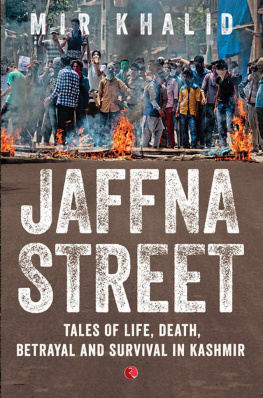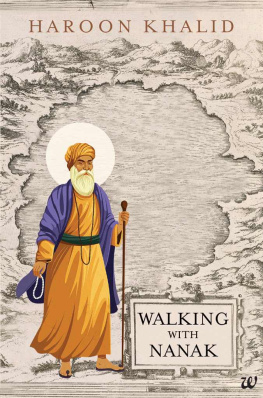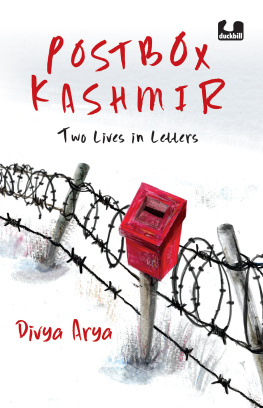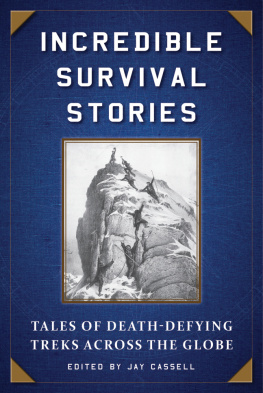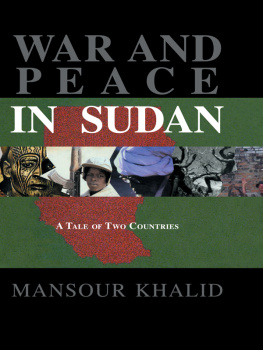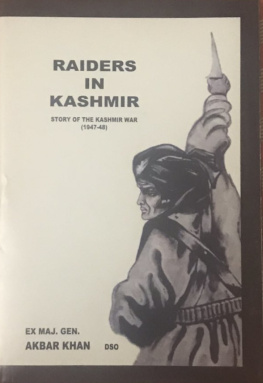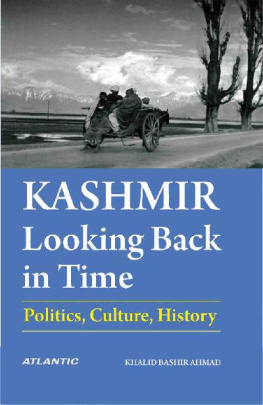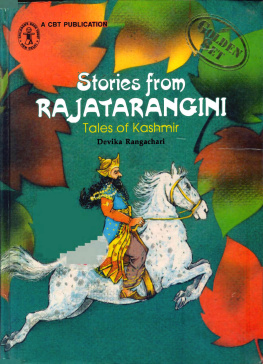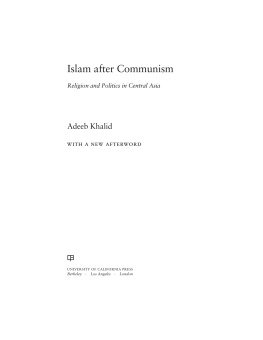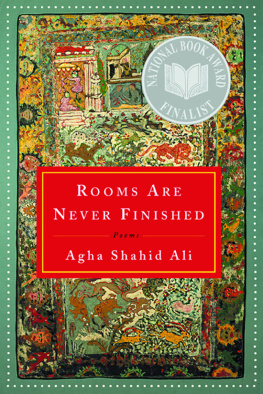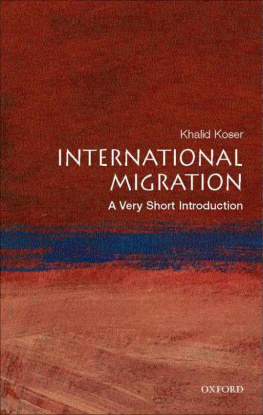Mir Khalid - Jaffna Street: Tales of Life, Death, Betrayal and Survival in Kashmir
Here you can read online Mir Khalid - Jaffna Street: Tales of Life, Death, Betrayal and Survival in Kashmir full text of the book (entire story) in english for free. Download pdf and epub, get meaning, cover and reviews about this ebook. year: 2017, publisher: Rupa Publications India, genre: Detective and thriller. Description of the work, (preface) as well as reviews are available. Best literature library LitArk.com created for fans of good reading and offers a wide selection of genres:
Romance novel
Science fiction
Adventure
Detective
Science
History
Home and family
Prose
Art
Politics
Computer
Non-fiction
Religion
Business
Children
Humor
Choose a favorite category and find really read worthwhile books. Enjoy immersion in the world of imagination, feel the emotions of the characters or learn something new for yourself, make an fascinating discovery.
- Book:Jaffna Street: Tales of Life, Death, Betrayal and Survival in Kashmir
- Author:
- Publisher:Rupa Publications India
- Genre:
- Year:2017
- Rating:5 / 5
- Favourites:Add to favourites
- Your mark:
- 100
- 1
- 2
- 3
- 4
- 5
Jaffna Street: Tales of Life, Death, Betrayal and Survival in Kashmir: summary, description and annotation
We offer to read an annotation, description, summary or preface (depends on what the author of the book "Jaffna Street: Tales of Life, Death, Betrayal and Survival in Kashmir" wrote himself). If you haven't found the necessary information about the book — write in the comments, we will try to find it.
Mir Khalid: author's other books
Who wrote Jaffna Street: Tales of Life, Death, Betrayal and Survival in Kashmir? Find out the surname, the name of the author of the book and a list of all author's works by series.
Jaffna Street: Tales of Life, Death, Betrayal and Survival in Kashmir — read online for free the complete book (whole text) full work
Below is the text of the book, divided by pages. System saving the place of the last page read, allows you to conveniently read the book "Jaffna Street: Tales of Life, Death, Betrayal and Survival in Kashmir" online for free, without having to search again every time where you left off. Put a bookmark, and you can go to the page where you finished reading at any time.
Font size:
Interval:
Bookmark:
JAFFNA STREET
Dr Mir Khalid was born in 1974 in a prominent civil services family from downtown Srinagar. He attended the citys prestigious Irish Catholic Burn Hall School before training in medicine. His clinical research has appeared in the British Journal of Surgery.
Jaffna Street is his first foray into English non-fiction writing. Previously he has published an anthology of Urdu poetry, Asbaat Khudi (2011). He, along with his family, currently lives in Jeddah, Saudi Arabia, where he is employed as a general surgeon. His next literary foray is a novel dealing with blighted human relationships.

Published by
Rupa Publications India Pvt. Ltd 2017
7/16, Ansari Road, Daryaganj
New Delhi 110002
Copyright Mir Khalid 2017
The views and opinions expressed in this book are the authors own and the facts are as reported by him/her which have been verified to the extent possible, and the publishers are not in any way liable for the same.
All rights reserved.
No part of this publication may be reproduced, transmitted, or stored in a retrieval system, in any form or by any means, electronic, mechanical, photocopying, recording or otherwise, without the prior permission of the publisher.
ISBN: 978-81-291-4532-1
First impression 2017
10 9 8 7 6 5 4 3 2 1
The moral right of the author has been asserted.
This book is sold subject to the condition that it shall not, by way of trade or otherwise, be lent, resold, hired out, or otherwise circulated, without the publishers prior consent, in any form of binding or cover other than that in which it is published.
Where death becomes absurd and life absurder.
Wilfred Owen
Apologia Pro Poemate Meo
Dedicated to my dad
Mir Nazir
(October 1941November 2011)
the quintessential downtown Srinagar lad, who embodied and helped me appreciate the humanity, resilience and Byronic streaks of the downtown streets in equal measure
and
Ms Neeru Kaul
cherished friend and fellow author, whose surreal originality always leaves me befuddled, and whose constant prodding and editing critiques saw me sit down and take the craft of writing seriously.
Contents
Foreword
Kashmir, the vale, my home, has remained one place where one could avoid anything but being political. In the early 1980s, on crisp spring and summer mornings, I would walk on the lush green lawns of the Kashmir University every day, making my way to the chemistry department from my hostel room, whose window faced the mystifying three peaks of Zabarwan Hills. But as I remember, three-odd decades on, even then my mind was bedeviled with an all-consuming Kashmir conundrum that would linger from discussions with fellow students hailing from virtually every nook and corner of the Valley.
I grew up in the 1960s in South Kashmir at a time when every side-turn and shopfront doubled as gathering spots where constant talk of plebiscite filled the air. The streets would often have overwhelming processions demanding self-rule. Any disturbance anywhere in the world would turn into an issue of protest against the occupation of Kashmir by an external power.
The perception that the early 1980s were times of tranquility and relative prosperity with Kashmir as a settled issue or so according to the powers that be, particularly those in Delhi, was nothing more than a mirage. From my interactions and discussions with people in and around the place, I had a lingering feeling that reality was at odds with canonical wisdom of the time; I harboured perennial doubts about the long-term viability of an apparent mismatch that had been fostered on the place through various machinations and historical quirks. The place, to me, seemed to be straddling deeply faulty political tectonic plates. The ensuing collision could not be avoided, nor could the impact of the impending cataclysm be predicted. And when that collision happened, it defied the worst predictions, if any. While geological collusions occur through the course guided by forces of nature, the unscrupulous external forces and powers to be with absolute lack of imagination hastened the eruption of political fault lines in Kashmir, resulting in a war that engulfed the entire populace.
What had also completely defied any prediction was an utter fragility and total collapse of the state even when the war was in its infancy; the later regrouping of the state came in the form of a counter-insurgency strategy that outdid the rebels in tactics and torture and veritably in brutality. The overarching conflict became all-consuming and not a single demographic group could escape its trepidations and effects. The war obliterated an old order; or perhaps that old order failed to see its obsoleteness. Many from that old order either escaped or embraced a new reality, but those for whom neither option existed were left to fend for themselves.
The armed insurrection of 1989 did not happen overnight; as a matter of fact, it had been on the anvil for a long time. It was there to see for anyone who wanted to see the signs. The seeds of future conflict in Kashmir were already sown the moment an instrument of accession was signed in 1947; both the Indian leadership and representatives of Kashmir harboured visions that were at complete cross purposes. The former, more interested in an idea of a monolithic unified Indian state than anything else and the latter, holding on to the dream of an autonomous entity.
One of the fundamental facts remained that accession to the Indian state never gained acceptance and legitimacy in the Valley, which was further complicated by forced and inhumane demographic engineering in the Jammu province at the behest of the then Dogra ruler. For the Indian state it didnt take long to lay bare its naked ambitions through the dismissal of the Sheikh Abdullah government in 1953. From then onwards all it did was run a charade of stage-managed democracy in the state. Nevertheless, the decades of 1970s and 1980s, in my opinion, were a watershed in pushing the valley into the inferno of 1990s. The changed geopolitics of the subcontinent in early 1970s did not leave Kashmir unaffected and in part led to an accord of 1975 that brought Sheikh Abdullah back to power in the state, albeit in a much-diminished avatar.
The Indian government, with its known propensity to be shortsighted, evidently also failed to perceive changes taking place in the international arena, in particular the Iranian revolution that overthrew the Shah and eventually brought Shiite clergy headed by Ayatollah Khomeini into power and the global forces unleashed in its aftermath. It continued demonstrating its unreformed vehemence in 1980s in its dealings with Kashmir after the death of Sheikh Abdullah. This not only further alienated the people but led to hardening of opinions against what was now seen as nothing more than an oppressive state. Twin disastersthe state governor in the form of Jagmohan, twice over, and botched elections of 1987could in many ways be thought of as the catalysts for the disaster that befell the Valley in the 1990s. The increased tenuousness of the situation in the Valley was accompanied by the ever-increasing brutality by security forces of the state. The question of whether rebellion would have been otherwise circumvented is hard to answer; the disaster, nevertheless, always lurked in the shadows, owing to faulty underpinning of the entire enterprise; perhaps the abyss into which Kashmir eventually fell was avoidable or at least could have been cushioned.
The war that engulfed Kashmir has seen many narratives enumerating the causes and consequences but most of those failed utterly, due to overt tendencies towards linearization and simplifications. History, as a historian friend would always scold me, is more than a mere narration of events; events affect people and they are the ones who live through times bad and good. As a matter of fact, history parallels the lives of the people that live through it and is best understood through their ordeals and travails. The decades of war that ravaged the Valley affected the lives of those living their ordinary existence who found themselves caught in the vortex of cataclysmic conflict. The stories of those individuals constitute the history of conflict and its genesis that resulted in lost decades and cost tens of thousands of lives.
Next pageFont size:
Interval:
Bookmark:
Similar books «Jaffna Street: Tales of Life, Death, Betrayal and Survival in Kashmir»
Look at similar books to Jaffna Street: Tales of Life, Death, Betrayal and Survival in Kashmir. We have selected literature similar in name and meaning in the hope of providing readers with more options to find new, interesting, not yet read works.
Discussion, reviews of the book Jaffna Street: Tales of Life, Death, Betrayal and Survival in Kashmir and just readers' own opinions. Leave your comments, write what you think about the work, its meaning or the main characters. Specify what exactly you liked and what you didn't like, and why you think so.

